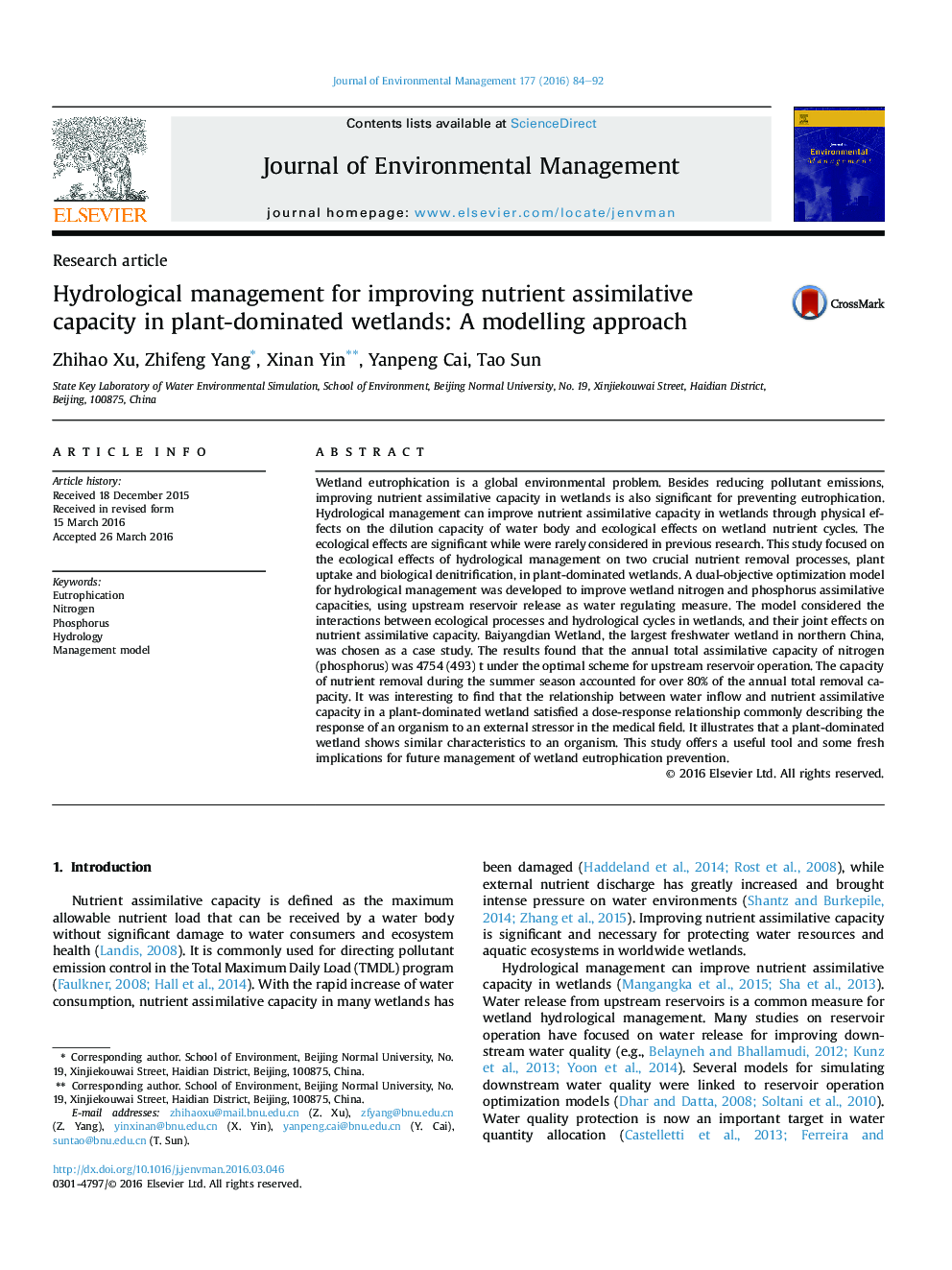| Article ID | Journal | Published Year | Pages | File Type |
|---|---|---|---|---|
| 7480329 | Journal of Environmental Management | 2016 | 9 Pages |
Abstract
Wetland eutrophication is a global environmental problem. Besides reducing pollutant emissions, improving nutrient assimilative capacity in wetlands is also significant for preventing eutrophication. Hydrological management can improve nutrient assimilative capacity in wetlands through physical effects on the dilution capacity of water body and ecological effects on wetland nutrient cycles. The ecological effects are significant while were rarely considered in previous research. This study focused on the ecological effects of hydrological management on two crucial nutrient removal processes, plant uptake and biological denitrification, in plant-dominated wetlands. A dual-objective optimization model for hydrological management was developed to improve wetland nitrogen and phosphorus assimilative capacities, using upstream reservoir release as water regulating measure. The model considered the interactions between ecological processes and hydrological cycles in wetlands, and their joint effects on nutrient assimilative capacity. Baiyangdian Wetland, the largest freshwater wetland in northern China, was chosen as a case study. The results found that the annual total assimilative capacity of nitrogen (phosphorus) was 4754 (493) t under the optimal scheme for upstream reservoir operation. The capacity of nutrient removal during the summer season accounted for over 80% of the annual total removal capacity. It was interesting to find that the relationship between water inflow and nutrient assimilative capacity in a plant-dominated wetland satisfied a dose-response relationship commonly describing the response of an organism to an external stressor in the medical field. It illustrates that a plant-dominated wetland shows similar characteristics to an organism. This study offers a useful tool and some fresh implications for future management of wetland eutrophication prevention.
Related Topics
Physical Sciences and Engineering
Energy
Renewable Energy, Sustainability and the Environment
Authors
Zhihao Xu, Zhifeng Yang, Xinan Yin, Yanpeng Cai, Tao Sun,
